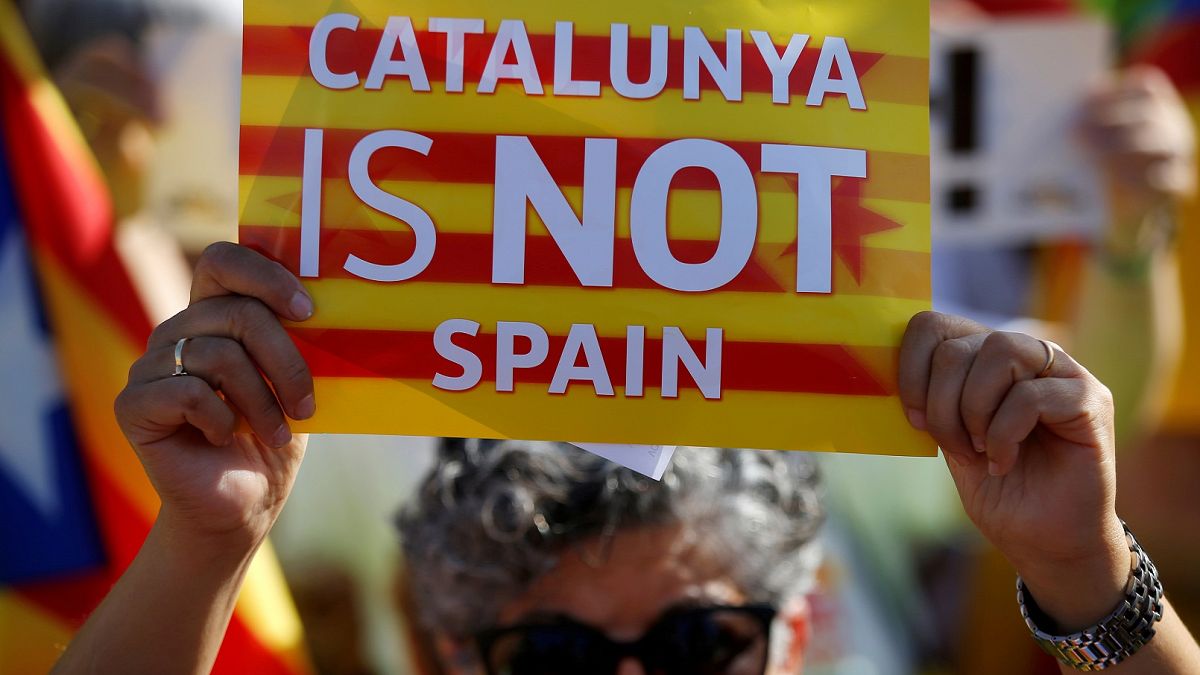The Committee on Legal Affairs of the European Parliament decided on 3 September to submit observations to the European Court of Justice on the case of the jailed MEP from Catalonia, Oriol Junqueras. [...] The importance of the Court’s decision cannot be underestimated.
The Committee on Legal Affairs of the European Parliament decided on 3 September to submit observations to the European Court of Justice on the case of the jailed MEP from Catalonia, Oriol Junqueras. Considering that there are no precedents of a member state preventing elected MEPs from taking their seats, the importance of the Court’s decision cannot be underestimated.
There are indeed precedents - even in Spain - of criminally prosecuted candidates being elected as MEPs. But none was prevented from taking office, as far as I am aware. In July, for instance, Greece had to lift travel restrictions on a neo-Nazi MEP currently on trial for very serious violent crimes. That is not to say that their election allowed them to escape prosecution. When elected they acquired parliamentary immunity, but that is no impediment for criminal proceedings to continue. In most cases, it only requires the European Parliament to waive the MEP’s immunity by a majority vote.
The key question in Junqueras’ case is whether MEPs acquire parliamentary immunity when they are declared as elected or when they effectively take their seats in the first session of the Parliament. This is by no means a nuance without practical relevance. In reality, it affects the raison d’être of immunity, because it determines if elected candidates can be effectively prevented from serving as MEPs by means of their detention or imprisonment.
Indeed, according to EU law, all MEPs enjoy full immunity while they are travelling to and from the place of meeting of the European Parliament for quite obvious reasons. This is the aspect of immunity that most clearly connects with its historical origin; it was envisaged to protect members of parliaments from a politically motivated arrest which changed the composition of the chamber and possibly the balance of power.
Spain claims that Junqueras is not yet an MEP, although he was declared as such by the Spanish Electoral Commission. They claim that he has to physically appear before the said commission and take an oath of allegiance to the Spanish Constitution before he’s given his credential as an MEP. Obviously he can’t, because he’s denied leave from prison to do so. In other words, Spain has decided not to allow Junqueras to serve as an MEP even though nobody questioned his right to run as a candidate.
The threat of imprisonment is also being used to prevent pro-Catalan independence MEPs Carles Puigdemont and Toni Comín from taking their seats. Some argue that they – and Junqueras - seek to use their seats in the EU Parliament to avoid facing justice for their past actions.
The vote of the Catalan people seems to be less important. However, such can never be an argument against parliamentary immunity, for even if the European Parliament refused to waive immunity in a given case (something that’s fairly rare), MEPs can still be prosecuted after the expiration of their term.
After four different countries have failed to grant the extradition of Catalan leaders living in exile, and after a body from the UN has condemned the pre-trial detention of those who are imprisoned in Spain, it is easy to understand why the Spanish authorities are trying to stop them from acquiring immunity. The question is whether Europe can afford to let Spanish authorities get away with this.
If parliamentary immunity does not ensure that an elected MEP will never be stopped from taking his or her seat by means of arrest or imprisonment (be it justified or not), then the very essence of this privilege is undermined. The powerful majorities are unlikely to suffer the most in this scenario. Immunity will always be most needed to protect vulnerable minorities. And there are many European countries where the rule of law and human rights cannot be taken for granted.
Therefore, the decision of the European Court of Justice is not only about Junqueras, or indeed the other Catalan leaders. It affects each and every one of the current, and future, MEPs. The very essence of parliamentary immunity is at stake. When the future of European democracy is under threat, it is not the best time to grant member states the power to keep out dissenting minorities from the European Parliament.
This is why the failure of the European Parliament’s Legal Service to uphold and abide by the long-standing position of the parliament itself, according to which immunity is effective from the time of publication of the results of the elections, is so worrying. If parliamentary immunity is denied to elected Catalan MEPs, some will be happy. But when the same rule is inevitably applied in the future, they may yet regret their current irresponsible stance.
- Josep Costa is the Vice-President of the Catalan Parliament and a member of the legal team representing former President of the Government of Catalonia and MEP, Carles Puigdemont.
____________
Are you a recognised expert in your field? At Euronews, we believe all views matter. Contact us at view@euronews.com to send pitches or submissions and be part of the conversation.
